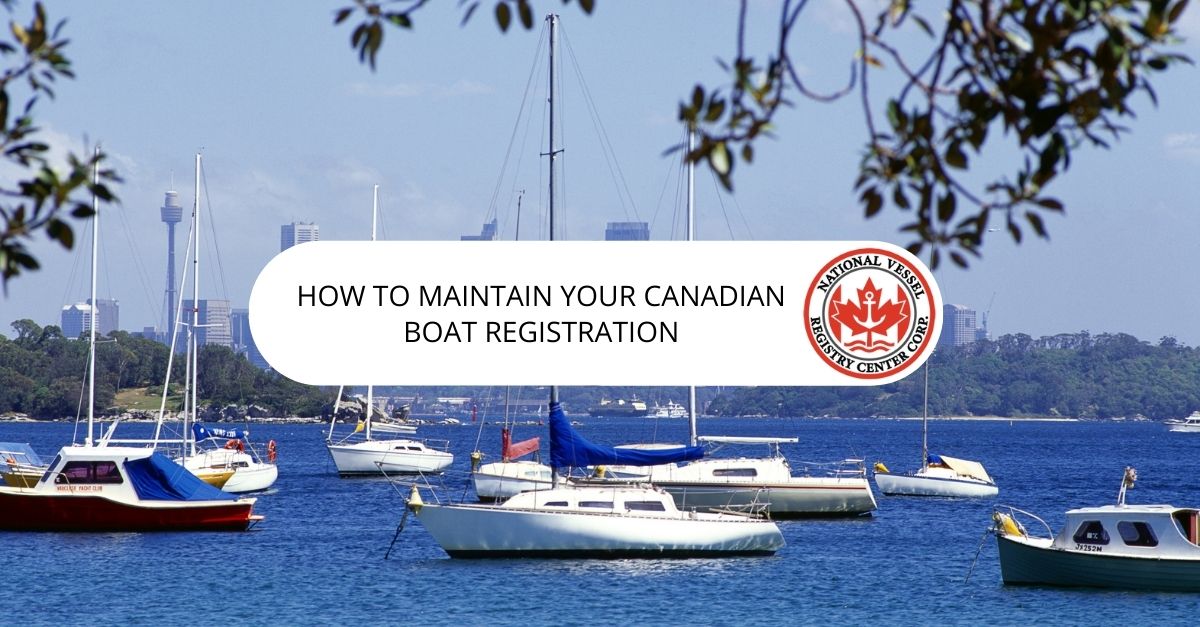Do you have a boat in Canada that you own? It is crucial to keep your recreational watercraft well-maintained and your Canadian boat registration up to date if you want to preserve your safety, comfort, and compliance with the law while you are out on the water. When you own a Canadian vessel, it’s easy to remember some of these crucial measures that need to be completed. Still, if you take just a few basic actions each season, you can easily maintain your documentation in order without any worry or bother. Before you take your boat out into the open seas of Canada, please read this blog article because we will discuss the essential preparations that need to be made beforehand!
Keep Tabs on Your Boat’s Maintenance Schedule
Keeping a close eye on your boat is the most effective approach to head off any issues. It is not sufficient to keep track of its position; you also need to be aware of how wholly and often it is maintained, the condition of its batteries, and whether or not anything else should be examined or changed regularly. If you are the owner of a small pleasure vessel, you should preserve a note of the maintenance history (together with any receipts) so that you can go back to it if someone has concerns about it later.
Keep All Records Up-to-Date
Maintaining your Canadian boat registration requires you to have all your paperwork in the current state to do so. This covers your boating license and the vessel you will be operating. On the other hand, boats are exempt from having to go through any inspection, unlike automobiles, which must have their safety systems inspected by a qualified technician. However, for them to be utilized on water, they will first need to be registered with us here at the National Vessel Registry Center, Corp. You cannot just renew your registration and use it again; instead, you will be required to provide evidence that you have maintained the most recent version of your boat.
Keep Records of All Major Repairs, Additions, or Upgrades Made to Your Boat
For a Canadian boat register, it is essential to maintain accurate records of the boat’s upkeep and repairs. It makes your craft more seaworthy and helps it maintain its condition for extended periods. You should retain any documentation of purchases that you make for the components or materials used in the maintenance of your boat, as well as any receipts for repairs, fuel expenditures, and other expenses you incur.
The essential thing that you should do is to maintain a diary of any significant maintenance or repairs. This way, if anything occurs while you are on vacation or out on the water, you will readily have all the relevant information in your records. If you have this information, it will be easier to avoid missing critical service intervals or warranty dates, which might lead to more significant issues in the future.
Know the Canadian Boat Registration Requirements
Boat owners, who are more used to working on their boats than writing about them, are usually less enthusiastic about this topic. We prefer to avoid discussing the formal necessities of boat registration in favour of more mundane issues like outboard motor maintenance and oil changes. If you intend to take your boat out on the open water or bring it into Canada, or if you want to sell or acquire a used boat in the future, you should familiarize yourself with Canadian boat registration rules. With limited exceptions, you need a certificate of title to take a watercraft over state borders or into Canada. Affidavits of ownership may be used in place of boat titles for vessels under 26 feet in length. The procedure has several subtle differences (more about that later).
Have Your Boat Inspected Regularly
Having your boat regularly examined by a licensed technician or the Canadian Coast Guard is the second step in keeping your registration current. In order to preserve your boat’s registration each year, you must provide evidence that it has been adequately maintained regularly. A vessel with significant mechanical issues will only be eligible for registration renewal if those issues are remedied. Suppose the repairs are completed after a year. In that case, you will be required to either deconstruct the boat and dispose of it at an authorized location or sell it to an individual who satisfies the conditions for registration.
You must catch up on Canadian boat registration to avoid breaking the law. You’ll face stiff penalties for failing to stay up to date with this vital paperwork, including fines and possible suspension of your driver’s license. It’s also important to note that lacking proper documentation may make obtaining insurance coverage difficult or impossible. The best way to avoid these problems altogether is by contacting the National Vessel Registry Center, Corp today through the website for more information.


